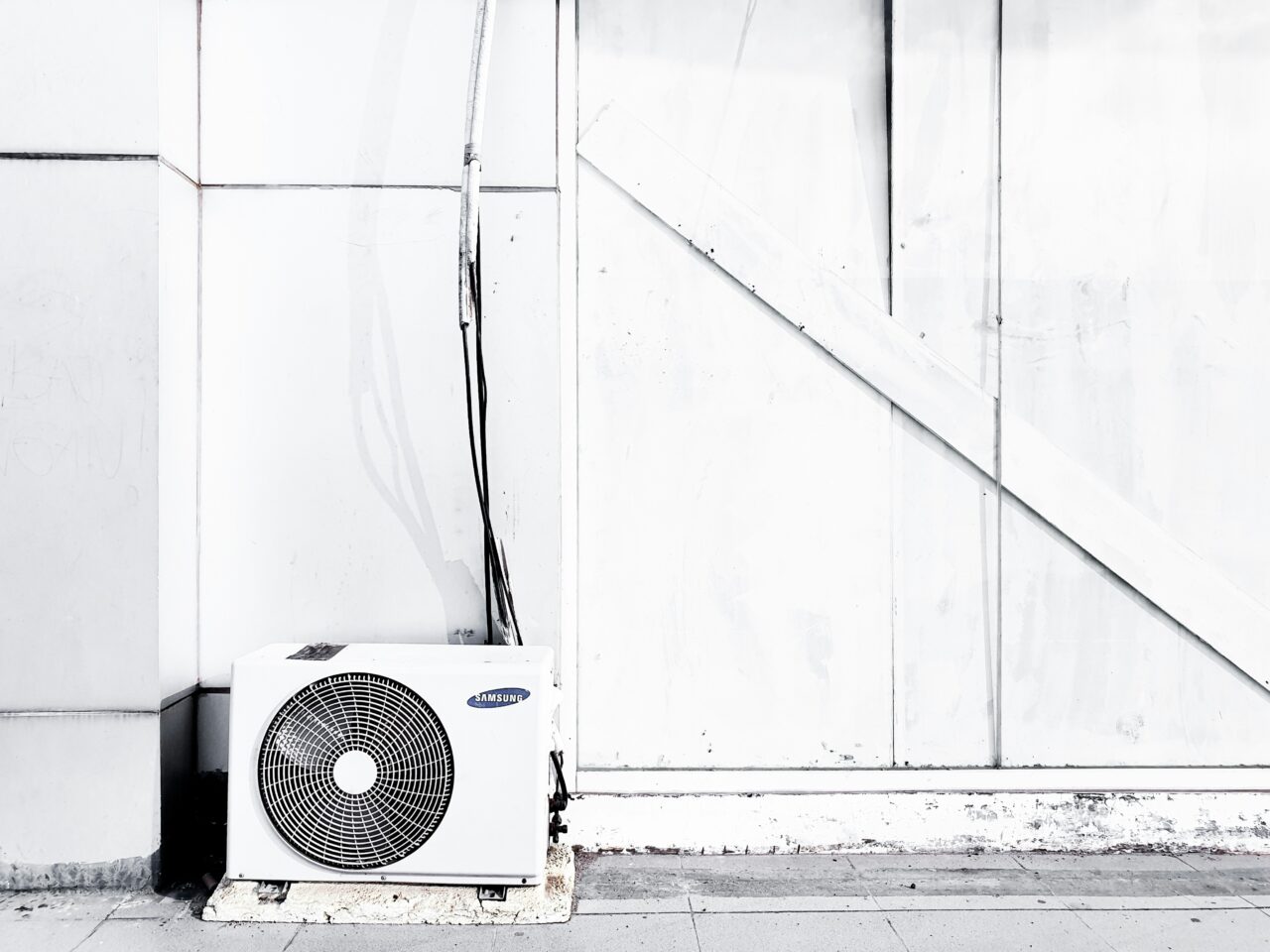Maintaining a comfortable home environment during the hot summer months is crucial, and a functioning air conditioning (AC) system is central to achieving this. Unfortunately, air conditioning systems can face a range of common air conditioning issues that impede their efficiency and effectiveness.
This extensive guide aims to arm homeowners with a deep understanding of common central air conditioning problems, providing insights into their causes, effects, and solutions. We also offer detailed preventative maintenance tips to ensure your AC system functions throughout its lifespan.
Overview of Common Central Air Conditioning Problems
Below are some common air conditioning issues and what typically happens. Before diving into common air conditioning problems, it’s important to understand the basics of how air conditioning systems work. An air conditioner consists of four main components: a compressor, condenser, expansion valve, and evaporator.
These components work together to transfer heat from the inside of your home to the outside, cooling the air.
How Air Conditioning Systems Work
Here’s a brief overview of each component:
- Compressor: The compressor pumps the refrigerant through the system and compresses it to raise its temperature.
- Condenser: Located outside the home, the condenser dissipates the heat absorbed by the refrigerant.
- Expansion Valve: This valve allows the high-pressure refrigerant to expand, cool, and turn into a low-pressure gas.
- Evaporator: Inside the home, the evaporator absorbs heat from the indoor air, cooling it down as the refrigerant evaporates.
Any issues with these critical components can lead to system inefficiencies or failures, affecting your comfort and increasing energy costs.
The Importance of Regular Maintenance
Regular maintenance is essential for the longevity and efficiency of your air conditioning system. Simple tasks like replacing filters and cleaning ducts can prevent a multitude of problems that might require costly repairs if neglected. Additionally, regular check-ups can identify potential issues before they escalate into major problems, ensuring your system remains efficient over its entire operational lifespan.
An In-Depth Look at Common Air Conditioning Problems
Improper Operation: A Frequent Oversight
Improper operation remains one of the most common causes of air conditioning issues. This includes running the AC with windows or doors open, which reduces system efficiency. Ensuring that you seal your home while the air conditioner is running can help maintain optimal performance and reduce strain on the system.
Refrigerant Leaks: Impact and Resolution
Refrigerant, the substance responsible for cooling the air, must be at the correct level for your air conditioner to operate. If your system lacks refrigerant or develops leaks, it will fail to cool your home. Signs of refrigerant leaks include:
- Inefficient Cooling: The AC is running but not cooling the house.
- Hissing Sounds: This could indicate a refrigerant leak.
- Frozen Coils: Low refrigerant can cause the evaporator coil to freeze.
A qualified technician should address these leaks by fixing them, testing the repair, and recharging the system with the correct refrigerant amount. Handling refrigerant leaks not only restores efficiency but also complies with environmental safety standards.
Electrical Control Failures: Ensuring System Integrity
Air conditioners rely on electronic controls to operate the compressor, fans, and other components. These controls can fail due to wear and tear, particularly in systems that cycle on and off. Symptoms of electrical control failures include:
- Inconsistent Cooling: The system turns on and off.
- Unresponsive Controls: The AC does not respond to thermostat settings.
- Circuit Breaker Issues: Frequent tripping of the circuit breaker.
Regular air conditioning service checks should include an assessment of these electrical components to ensure they are functioning, thus maintaining the integrity and reliability of the entire system.
Thermostat Sensor Problems: Calibration and Adjustment
The thermostat sensor plays a critical role in measuring the temperature of incoming air and regulating the cooling cycle. If this sensor is not calibrated or if it shifts from its proper position, it can cause the air conditioner to cycle or behave. Signs of thermostat sensor issues include:
- Irregular Cycling: The AC turns on and off.
- Inaccurate Temperature Reading: The room feels cooler or warmer than the set temperature.
Proper positioning and calibration of the thermostat sensor are essential for maintaining desired comfort levels and operating efficiency.
Drainage Issues: Ensuring Proper System Flow
Proper drainage is crucial, especially in areas with high humidity. An air conditioner’s drainage system removes condensation produced during the cooling process. If you block this system or do not level the unit, it can lead to water backing up, which damages the system and your home. Indications of drainage issues include:
- Water Leaks: Water pooling around the indoor unit.
- Increased Humidity: Higher indoor humidity levels.
- Musty Odors: Odors from stagnant water.
Regular checks and maintenance are necessary to ensure that the drainage system functions.
Scheduled Professional Inspections
While regular homeowner maintenance is essential, professional inspections and maintenance are crucial for optimal performance. Schedule these checks at least once a year and ensure they include a thorough check of all system components. Professional technicians can also perform tasks that are more complex, such as:
- Checking Refrigerant Levels: Ensuring the system has the correct refrigerant charge.
- Inspecting Electrical Connections: Checking for loose or corroded connections.
- Calibrating the Thermostat: Ensuring accurate temperature readings and efficient operation.
Engaging in Proactive Air Conditioning Care
Being proactive about air conditioning maintenance is the best way to extend the life of your system, improve your home’s comfort, and ensure energy efficiency. Regular maintenance tasks, such as cleaning filters and scheduling professional check-ups, along with immediate attention to repairs and adjustments, can keep your air conditioning system in peak condition. Here are some additional proactive care tips:
Routine Filter Replacement
Replacing the air filter is one of the simplest yet most effective maintenance tasks. A clogged filter restricts airflow, reducing efficiency and leading to more wear and tear. Check filters monthly and replace them every 1-3 months, depending on the type and usage.
Monitoring System Performance
Keep an eye on your air conditioning system’s performance. Unusual noises, reduced cooling efficiency, or higher energy bills can indicate potential problems. Early detection and resolution of these issues can prevent more extensive and costly repairs.
Scheduling Seasonal Maintenance
Seasonal maintenance is crucial for preparing your system for peak usage periods. Schedule professional maintenance in the spring before the cooling season begins and in the fall before heating is needed. This ensures your system is ready to perform when you need it most.
Keeping the Outdoor Unit Clean
The outdoor unit of your AC system can collect dirt, leaves, and debris, which can obstruct airflow and reduce efficiency. inspect and clean the outdoor unit, ensuring that the area around it is clear of obstructions.
Using a Programmable Thermostat
A programmable thermostat can help optimize cooling efficiency by adjusting the temperature according to your schedule. Setting higher temperatures when you’re not home and cooler temperatures when you are can save energy and reduce wear on the system.
Be Proactive with AC System Maintenance
Maintaining your air conditioning system involves understanding its components, recognizing common issues, and performing regular maintenance. By being proactive and addressing problems early, you can ensure your system operates, providing reliable cooling throughout the hot summer months.
Regular maintenance tasks, such as cleaning filters and scheduling professional check-ups, along with immediate attention to repairs and adjustments, can keep your air conditioning system in peak condition. Take proactive steps today to ensure your air conditioning system is ready to provide reliable cooling during the hot summer months.


